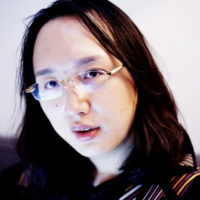
Key Quote
“To me, democracy is a type of technology and each person in a democratic polity is a technologist,” Tang explains. “If you look at it that way, then the future of democracy cannot be just providing a few bits of information every four years at the ballot box. It has to be a day-to-day democracy where citizens actually engage and set the agenda of public discourse themselves.”
In 2014, Audrey Tang was peering into the halls of government from the outside as a protestor. Today, she helps usher more people into a decision-making process she now leads. As Taiwan’s first-ever digital minister, she implements a range of technology-enabled reforms that aim to facilitate what she calls “day-to-day democracy”—where continuous citizen engagement is the norm rather than the exception, and where civil society, the public and private sectors increasingly work together to co-create solutions to the country’s most pressing concerns.
Audrey Tang was a software programmer living in Silicon Valley when Taiwan’s Sunflower Movement protests broke out in 2014. She felt a calling to return home and use her skills to help the movement. Two short years later, she was asked to join the new government as the nation’s first digital minister. Tang quickly had to learn how to become an administrator instead of just a protestor—but she never really gave up the revolutionary spirit. She simply channeled it toward revolutionizing the process of governing itself.
“In democratic nations, we have long viewed advocacy as largely about protesting and petitioning,” Tang explains. “And while this approach can be effective in compelling elected officials to act, it’s smarter to reduce the need for tension in the first place. That’s why I have worked as minister to lead us toward the next stage of democracy: what I call co-creation.”
In Tang’s view, co-creation is all about facilitating a continuous democratic process where citizens can—and, perhaps more importantly, want to—engage in their democracy on a regular basis.
“To me, democracy is a type of technology and each person in a democratic polity is a technologist,” Tang explains. “If you look at it that way, then the future of democracy cannot be just providing a few bits of information every four years at the ballot box. It has to be a day-to-day democracy where citizens actually engage and set the agenda of public discourse themselves.”
As minister, Tang sees her job as developing the digital public infrastructure that can make this concept a reality for the greatest number of people. That is why she quickly embraced the concept of g0v (pronounced “gov zero”) open source collaboration, which encourages ordinary citizens to rethink the role of government from zero and then share these ideas with elected officials. Tang established a g0v channel that provides citizens with a way to continuously interact with the minister and her government via popular social media and chat platforms like Slack and Telegram. “They never need to travel to Taipei City to meet me,” Tang explains. “They can just hop online and if they hashtag me I will usually see it within an hour.”
The public feedback and suggestions gathered in this way have led to a series of different innovations. For instance, re-imagining the national budget website. A decade ago, public input on the budget amounted to little more than the ability to access a few PDFs with hard-to-read and difficult-to-interpret numbers. That was until g0v co-creators started their own project to present the data visually, and with far greater contextual detail, so that everyday citizens could actually understand what they were looking at—and then comment on it.
This participatory budgeting idea was such a good one that, by 2016, Tang made it an official part of the Taiwanese government’s join.tw.gov platform—a site Tang’s office developed to provide the public with greater input on regulatory matters. “Each regulation is pre-announced and opened up for a general commentary,” Tang explains. “Then we livestream an open, face-to-face, multi-stakeholder dialogue with the people who have petitioned for and against it.” The goal, she says, is to give citizens access to the collective thinking behind each regulation so they can go beyond the what of policymaking to understand the why, too.
This idea is reflected in many of Tang’s other initiatives as well.
From empowering citizens to e-petition government ministers (who must automatically submit point-by-point responses to any proposal with 5,000 signatures), to deploying “humor over rumor” campaigns that counter Chinese state propaganda with Shiba Inu memes, Tang is always looking for new ways to make the government more relatable and more relevant to its citizens with technology.
As Tang looks to the future, she sees citizens and governments increasingly moving towards this ‘active participation’ civic mindset. She similarly sees the same type of collaborative approach increasing amongst not just the public and private sectors, but also civil society organizations. “The social sector is where good ideas begin and the public sector is where their importance can be amplified, but it falls to the private sector to actually scale these things up so that they can become reality,” Tang says.
“Co-creation is definitely the way that democracy will deepen itself into the future,” Tang concludes. “And this is not just about Taiwan, because any democratic polity can also see democracy as a technology that everyone can contribute to and improve.”
Key Takeaways
- As Taiwan’s first-ever digital minister, she implements a range of technology-enabled reforms that aim to facilitate what she calls “day-to-day democracy”—where continuous citizen engagement is the norm rather than the exception, and where civil society, the public and private sectors increasingly work together to co-create solutions to the country’s most pressing concerns.
- From empowering citizens to e-petition government ministers (who must automatically submit point-by-point responses to any proposal with 5,000 signatures) to deploying “humor over rumor” campaigns that counter Chinese state propaganda with Shiba Inu memes, Tang is always looking for new ways to make the government more relatable and more relevant to its citizens with technology.
- As Tang looks to the future, she sees citizens and governments increasingly moving towards this ‘active participation’ civic mindset. She similarly sees the same type of collaborative approach increasing amongst not just the public and private sectors, but also civil society organizations.

